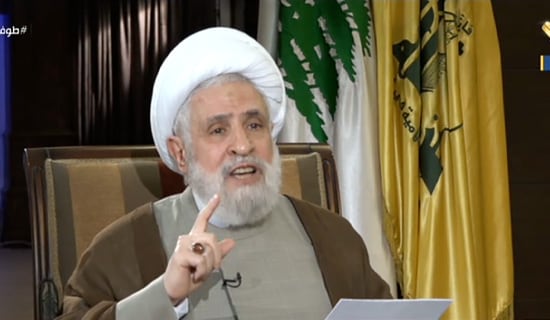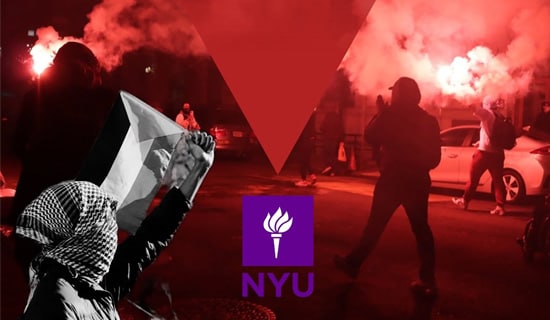Following the sanctions imposed by the U.S., Britain and Canada on China in March 2021 over its persecution of the Uyghur minority in Xinjiang – which join the sanctions imposed on China in July 2020 for passing a law restricting political freedom in Hong Kong – China's ambassador in Syria, Feng Biao, published an article in the Syrian daily Al-Ba'th titled "Enough with the American and Western Hypocrisy regarding Human Rights and Democracy." In the article, the ambassador accused the U.S. and the West of baselessly blackening China's reputation and harming its interests, and of fomenting insurgency in Hong Kong. They do this, he said, under the pretext of defending democracy and human rights, but their real aim is to spark chaos in China in order to topple the Communist Party regime. However, they will not be successful, because China today is not what it was in the past, he stated. The ambassador added that no country in the world devotes more efforts than China to the welfare of the Uyghurs and to the prosperity and growth of Hong Kong.
Biao stated further that the U.S. and the West, who purport to be "beacons of democracy" and "experts on human rights," interfere I the internal affairs of other countries while ignoring their own human rights violations. He warned that, if they continue using the pretext of human rights to attack China, "they will pay heavily for their stupidity and arrogance."

Feng Biao (Source: Al-Ba'th, Syria)
The following are translated excerpts from his article.[1]
"The U.S. and other [Western] countries are always touting themselves as experts on human rights and as beacons of democracy, and using this as a tool to pressure and harm countries that do not submit to them or which differ from them in their regime. This scenario has recurred many times in the history of the relations between China and the West. Lately, the Western countries have been exploiting the issues of Xinjiang [the northwestern region of China where the Uyghur population is concentrated] and Hong Kong as a new excuse [to do this], and have invented lies and fake news in order to regale the world with a new and ridiculous charade of smearing China's political reputation and arbitrarily interfering in its affairs. With deliberate malice, they also brought up the issue of cotton cultivation in Xinjiang and falsely accused China of [using the Uyghurs] as forced labor and of forcefully sterilizing them. They even accused China of genocide and claimed that its moves to improve Hong Kong's electoral system[2] are an act of abandoning its democracy [to a sorry fate]. This was the rational for the sanctions imposed on China by the U.S., Britain and the E.U.
"However, China is no longer as it was 100 years ago, and the Western powers cannot vanquish it with a few cannon deployed along its coast. Those times are gone for good. [The Western powers] are also trying to undo the great revival of the Chinese nation, to the point of toppling its regime, led by the Chinese Communist Party – but this attempt will never succeed.
SUPPORT OUR WORK

"Everyone knows that the West and the U.S. are trying to trap China in [a state of] chaos and division, in the guise of [promoting] 'democracy' and 'liberty.' In discussing the three objectives of deploying U.S. troops in Afghanistan in August 2018, Lawrence Wilkerson, a retired U.S. Army Colonel and former chief-of-staff to U.S. Secretary of State Colin Powell, admitted that the third objective [had to do with] the existence of 20 million Uyghurs in Chinese Xinjiang. The CIA wanted to destabilize China, and [decided that] the best way to do this would be to use these Uyghurs to provoke Beijing and topple [China] from within, [ostensibly] without [the involvement of] any Western power.[3]
"In this context, it is not difficult to understand the intentions behind the [the following] U.S. [moves:] bringing up the claim of so-called forced labor [in connection with] Xinjiang cotton; making intense efforts to whitewash the Islamic Movement of East Turkestan – which has several thousand people [fighting] in Syria's Idlib under the name Turkestan Islamic Party – and acting to remove the name [of this movement] from the Security Council's list of terror organizations… while trying to accuse the Chinese government of carrying out so-called genocide in Xinjiang. But the truth is the opposite of what it claims, for cotton cultivation in most parts of Xinjiang has long been based on machinery. Moreover, between 2008 and 2010, the number of Uyghur citizens grew from 10.17 million to 12.71 million, i.e., by 25%, more than any other ethnic group in Xinjiang… So the lies of genocide collapse of themselves.
"Hong Kong, which is a Special Administrative Region, belongs to its residents. No government in the world has devoted more attention in the past 150 years, on a regular basis, to the security, prosperity and growth of Hong Kong. Were any of Hong Kong's [British] governors elected by its people before Hong Kong returned to the homeland [China]? After its return [to Chinese rule] in 1997, the central Chinese government established the Special Administrative Region of Hong Kong and started implementing the policy of 'one country, two systems,'[4] 'Hong Kong ruled by the people of Hong Kong,' 'a high degree of autonomy,' and electing the Hong Kong governor according to the region's Basic Law.
"But in recent years, subversive and anti-China elements started to agitate for 'Hong Kong independence' with the support of the Western powers. They carried out subversive activity… while exploiting the flaws of Hong Kong's [former] electoral system, [activity] which badly weakened Hong Kong's political and judicial systems and severely undermined the [Chinese] state's sovereignty, security, economic interests… and social stability. The approval of the improvements to Hong Kong's electoral system by [China's] National People's Congress will keep these subversive forces from dismantling the administrative rule, prevent political chaos and social unrest, guarantee that administrative rule will remain in local hands, ensure the steady progress of the 'one country, two systems' policy, and safeguard Hong Kong's long-term prosperity and stability. The decision of the National People's Congress was supported by Chinese people across the country, including residents of Hong Kong, and officials and individuals from all circles, unions and bodies expressed their strong support for it. Over 2.38 million Hong Kong residents signed a [petition] expressing support for it, either online or in person, [at street booths erected for this purpose]. This reflects broad support within Hong Kong society for [the principle of] 'Hong Kong ruled by the people of Hong Kong.'
"As for the presumption [of the West], led by the U.S., to be 'experts on human rights' and 'beacons of democracy,' [note] how severe their own human rights violations are, and how they ignore their own problems. [Therefore,] they have no right to make allegations about the issues of Xinjiang and Hong Kong or about any other domestic Chinese affair.
"At the height of the Covid-19 pandemic, the entire [American] public was denied the most basic rights to healthcare and life, when American politicians preferred their own interests over [listening to] science and let over 30 million people contract the virus and 550,000 die of it. Minorities in America suffer systematic and long-term discrimination; tens of millions of African Americans cried out 'I can't breathe' after the George Floyd incident; in 16 cities the number of hate-crimes against Asians rose by 150%, compared to March of last year [2020]; incidents of violent law enforcement are rising, and no change has occurred [in this regard], for in February-November 2020 there were only 17 days without anyone being murdered by law enforcement. The U.S. has made a habit of intervening [in the affairs of other countries] on the pretext of [defending] human rights, which has led to many humanitarian disasters around the world. Since 2001, it has launched an 'anti-terrorism campaign' in over 80 world countries, causing the death of more than 800,000 people in war and violence, 335,000 of them civilians, and the displacement of about 21 million people in Afghanistan, Iraq, Syria and other countries. In addition, the U.S. has also imposed arbitrary unilateral sanctions on Syria and other countries, causing great suffering to their peoples.
"The despicable actions of the U.S. have apparently enraged the international community, for at the 46th Session of the Human Rights Council, the representatives of 116 countries and relevant international agencies submitted 347 proposals pertaining to the human rights situation in the U.S. This shows that the U.S. is not worthy of representing the universal value [of human rights] and has no right to make accusations against other countries. Also at this session, over 100 countries expressed… their support for China's moves in Xinjiang and Hong Kong. All this shows that facts speak louder than words, because justice resides in all people's hearts.
"The issues of Hong Kong and Xinjiang are purely internal Chinese matters. China will defend its sovereignty, security and economic interests with uncompromising firmness. It's time to put an end to the West's and America's charade of harming and criticizing China using [the pretext of defending] 'human rights' and 'democracy,' and if they insist on doing this they will pay heavily for their stupidity and arrogance."[5]
[1] Al-Ba'th (Syria), April 3, 2021.
[2] China recently passed sweeping changes to Hong Kong's electoral system. Under the new law, the number of elected MPs in Hong Kong's parliament will be cut almost by half, and candidates will be vetted by a pro-Beijing committee to ensure their loyalty to the regime. Bbc.com, March 30, 2021.
[3] As evidence of this, the ambassador provided a link to a video of Wilkerson's statements on this issue: www.youtube.com/watch?v=7fgwKSonqms. .
[4] A principle formulated by Britain and China describing the governance of Hong Kong and Macau after their return to Chinese rule in 1997 and 1999, respectively. The principle states that they will retain their capitalist economic system and have a high degree of autonomy for 50 years following their return to China.
[5] Al-Ba'th (Syria), April 3, 2021.




